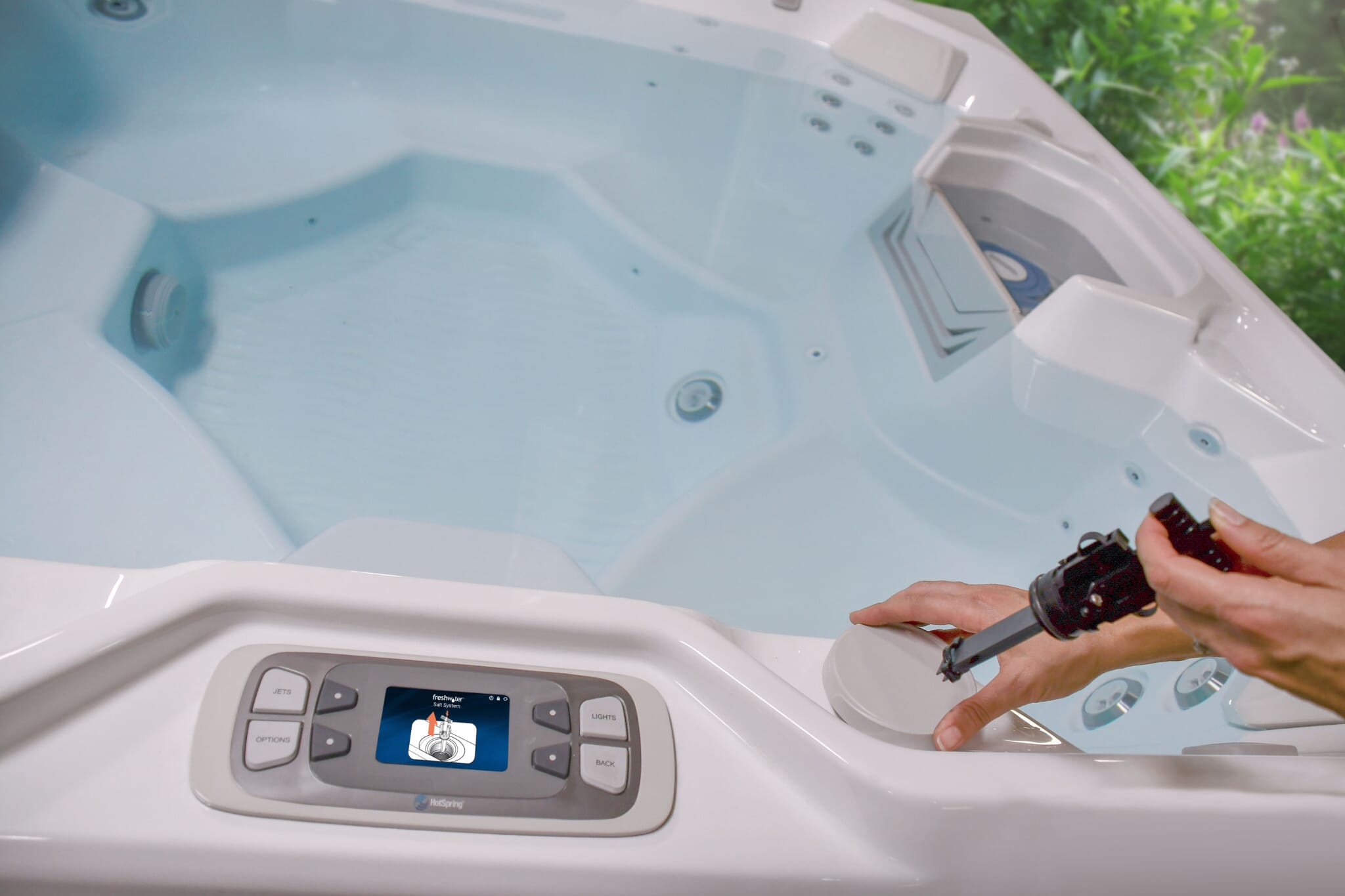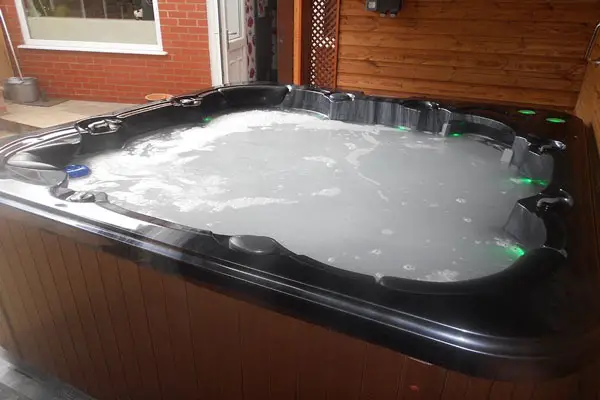If you have ever turned on your faucet to find that your hot water is cloudy, then you know how frustrating it can be. You may think that there is something wrong with your water heater, but the reality is that this is a problem that can be easily fixed. In most cases, cloudy hot water is caused by minerals in the water.
When these minerals build up, they can cause the water to become cloudy. The good news is that there are a few things that you can do to fix this problem.
- If your hot water is coming out cloudy, there are a few possible causes and a few possible solutions
- First, check to see if there is sediment in the bottom of your hot water heater
- If so, you can flush the tank to remove the sediment
- Second, check your home’s water pressure
- If it’s too high, it can cause cloudiness in your hot water
- You can adjust the pressure by yourself or hire a professional to do it for you
- Third, make sure that your hot water pipes are clean and free of corrosion
- If they’re not, they could be causing the cloudiness
- You can clean them yourself with a brush and some vinegar or hire a professional to do it for you
- Once you’ve checked all of these things, if your hot water is still cloudy, you may need to call a plumber for help
How to fix cloudy hot tub water in three easy steps!
Why is My Hot Water Coming Out Cloudy?
There are many reasons your hot water might be coming out cloudy. It could be due to a build-up of minerals in your pipes, or it could be that your water heater needs to be descaled. If you have an older water heater, it’s possible that the anode rod is corroded and needs to be replaced.
If you notice that your hot water is coming out cloudy, it’s best to call a plumber to take a look and diagnose the problem. They will be able to determine what is causing the issue and make sure that your hot water heater is repaired or replaced if necessary.
Why is the Hot Water White And Cloudy?
If you’ve ever noticed that your hot water appears white and cloudy, you may have wondered what causes this. The short answer is that it’s most likely due to dissolved minerals in your water. When water is heated, these minerals can precipitate out of the water and form a cloudy white residue.
There are several factors that can contribute to high levels of dissolved minerals in your water. If you have hard water, this is probably the main culprit. Hard water contains high levels of calcium and magnesium, which can leave behind deposits when the water is heated.
Another possibility is if your home has an older plumbing system made with galvanized pipes. These pipes can leach zinc into the water, which can also cause cloudiness when hot.
Fortunately, there’s no need to worry about diluted mineral content in your hot water causing any health problems.
While it might not be aesthetically pleasing, it poses no threat to you or your family. If you want to improve the appearance of your hot water, there are a few things you can do. First, try installing a whole-house filter to remove some of the dissolved minerals before they have a chance to reach your taps.
You can also add a pitcher filter to your refrigerator for drinking and cooking water.
Is Cloudy Hot Tap Water Safe?
Yes, cloudy hot tap water is safe. The cloudiness is caused by dissolved minerals, and while these minerals can give the water a slightly different taste, they are not harmful.

Credit: www.happyhottubs.co.uk
Kitchen Sink Hot Water is Cloudy
If your kitchen sink hot water is cloudy, it’s likely due to a build-up of minerals in your water heater. Over time, these minerals can form a thick layer on the bottom of your tank, which can eventually lead to cloudy hot water. Luckily, there are a few simple things you can do to clear up this problem.
First, try flushing your water heater to remove any built-up sediment. You can do this by attaching a garden hose to the drain valve at the bottom of your tank and running the hose until the water runs clear. Be sure to disconnect the power to your water heater before doing this so you don’t accidentally electrocute yourself!
If flushing your water heater doesn’t seem to help, you may need to descale it. This process involves using an acidic solution (like vinegar or lemon juice) to dissolve mineral deposits inside your tank. You’ll need to follow the instructions carefully and be sure not to damage any part of your water heater while doing this.
Once you’ve descaled your water heater, it’s important to flush it out again with clean water before turning it back on. Otherwise, you could end up with even more cloudy hot water. If all else fails, you may need to replace your entire water heater – but hopefully following these tips will help avoid that!
Cloudy Hot Water from Water Heater
If you have ever turned on your hot water only to find that it’s cloudy, you may be wondering why. Although it may look unappetizing, there is actually no need to worry. Cloudy hot water from your water heater is perfectly safe to use and drink.
There are a few different reasons why your hot water might be cloudy. One possibility is that your hot water tank has sediment build-up on the bottom. This happens over time as minerals in the water settle out of suspension and onto the surface of the heating element.
Sediment can insulate the heating element, which decreases its efficiency and causes the burner to work harder to heat the water. Additionally, when sediment is heated, it can release minerals into the water which can make it taste bad or cause staining on fixtures or laundry.
The best way to prevent cloudy hot water is to have yourhot water tank flushed regularly by a licensed plumber.
This will remove any sediment build-up and help prolong the life of your tank.
New Hot Water Heater Cloudy Water
If you’ve noticed that your hot water has become cloudy, it’s likely due to minerals in your water supply. While this isn’t necessarily a cause for concern, it can be annoying and even affect the performance of your hot water heater.
There are a few things you can do to clear up the cloudiness.
First, try running your hot water tap for a minute or two before using it. This will help flush out any sediment that’s built up in your pipes.
If that doesn’t work, you can try adding a filter to your hot water heater.
This will help capture any sediment before it has a chance to get into your pipes and cause cloudy water.
Finally, if you’re still having trouble with cloudy hot water, you may need to have yourhot water heater professionally cleaned. This is something best left to the experts, as they’ll know how to properly clean and maintain your hot water heater to prevent future problems.
Conclusion
If you have ever turned on your hot water only to be greeted by a stream of cloudy water, then you know how frustrating it can be. There are a few different reasons why your hot water might be cloudy, but luckily there are also a few different ways that you can fix the problem.
One reason why your hot water might be cloudy is because there could be sediment in your water heater.
Over time, this sediment can build up and cause your hot water to become cloudy. To fix this problem, you will need to flush out your water heater. This is a fairly simple process that you can do yourself, or you can hire a professional to do it for you.
Another reason why your hot water might be cloudy is because of the minerals in your water. Hard water often contains high levels of minerals such as calcium and magnesium. These minerals can cause your hot water to become murky and clouded.
The best way to fix this problem is to install a whole house filter or reverse osmosis system. This will remove the minerals from your water before they have a chance to build up in your pipes and cause problems.
If you are still having trouble with cloudy hot water after trying these methods, then you may need to call a plumber for help.
They will be able to diagnose the problem and give you some options for fixing it once and for all!

